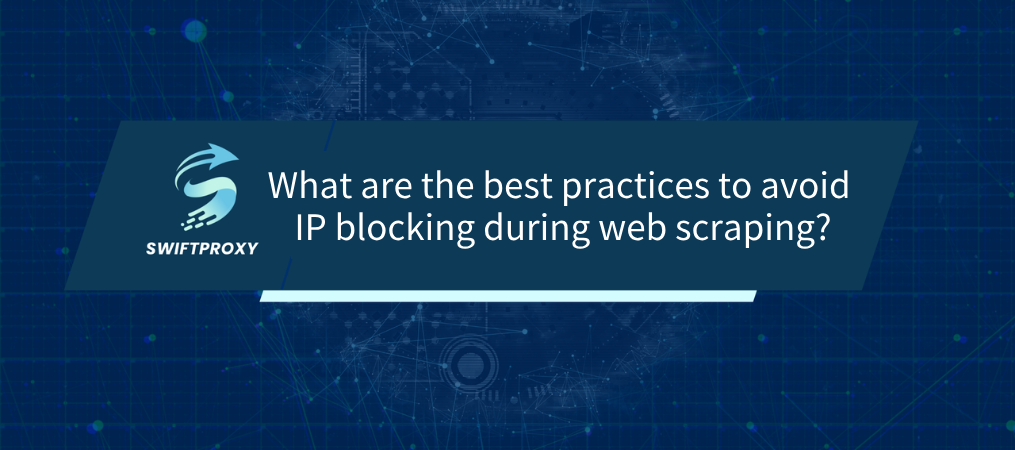What are the best practices to avoid IP blocking during web scraping?

Avoiding IP blocking is crucial during web scraping because once the IP is blocked, the scraping activity will not be able to proceed and may even lead to legal disputes. Here are some best practices to avoid IP blocking during web scraping:
1. Comply with the Robot Exclusion Protocol (Robots.txt)
Every web developer must comply with the website's robots.txt file. This file contains the rules that the website owner wants the web crawler to follow. Ignoring these rules may lead to legal issues or even cause the IP to be banned from accessing the website. Therefore, before scraping data, be sure to check and comply with the target website's robots.txt file.
2. Use a proxy server
A proxy server can hide the real IP address, thereby avoiding being blocked by the target website. Using a dynamic proxy (rotating proxy) can further improve security because each request can be issued from a different IP address, making it more difficult for the website to detect and block the scraping activity. When choosing a proxy server, it is recommended to use a high-quality exclusive proxy and avoid using a low-quality or public proxy to reduce the risk of being detected.
3. Control the frequency of requests
Too frequent requests may attract the attention of the target website and cause the IP to be blocked. Therefore, when crawling data, the frequency of requests should be controlled to avoid making too many requests to the website in a short period of time. You can use a timer or set a request interval to control the frequency of requests to imitate the browsing behavior of real users.
4. Set request header information
When crawling data, you can set the request header information to simulate the requests of real users. Including setting User-Agent, Referer, Cookie and other information to reduce the possibility of being identified as a crawler by the target website. In addition, regularly changing User-Agent can also help hide the true identity of the crawler.
5. Use headless browsers
Headless browsers can simulate real user interactions, making it more difficult for websites to detect crawling activities. Headless browsers are particularly useful when dealing with websites that use JavaScript to load or display content. However, headless browsers can take up a lot of resources, so you need to pay attention to performance issues when using them.
6. Bypass anti-crawler mechanisms
Some websites set up anti-crawler mechanisms to prevent crawlers from crawling data. To bypass these mechanisms, some advanced techniques can be used, such as forging and rotating TLS fingerprints, using different request headers, etc. In addition, you can also consider using CAPTCHA recognition technology to automatically solve CAPTCHA problems.
7. Monitor and adjust crawling strategies
During the crawling process, the crawling effect and the response of the target website should be constantly monitored. If it is found that the IP is blocked or the crawling speed is significantly reduced, the crawling strategy should be adjusted in time, such as changing the proxy server, adjusting the request frequency, etc.
8. Comply with laws and ethics
When crawling data, it is important to comply with relevant laws, regulations and ethical standards. Crawl copyrighted content without permission is illegal and may result in serious legal consequences. Therefore, before crawling data, be sure to ensure that you have the right to access and use the data.
Conclusion
Avoiding IP blocking is an important task in the web crawling process. By complying with the robot exclusion protocol, using proxy servers, controlling request frequency, setting request header information, using headless browsers, bypassing anti-crawler mechanisms, monitoring and adjusting crawling strategies, and complying with legal and ethical standards, you can effectively reduce the risk of IP being blocked and improve crawling efficiency and success rate.

















































